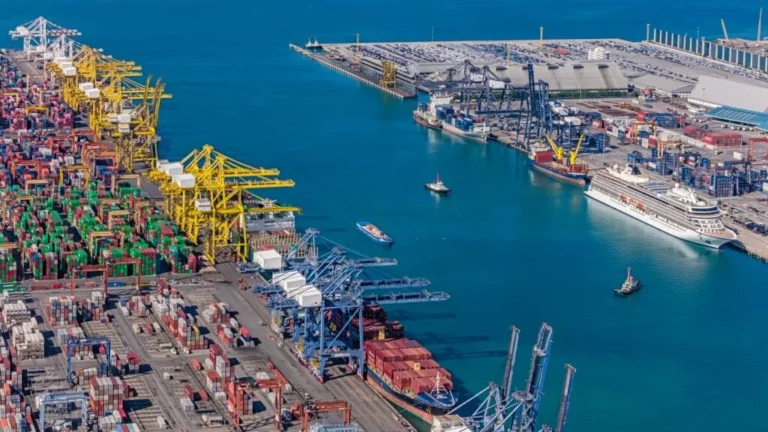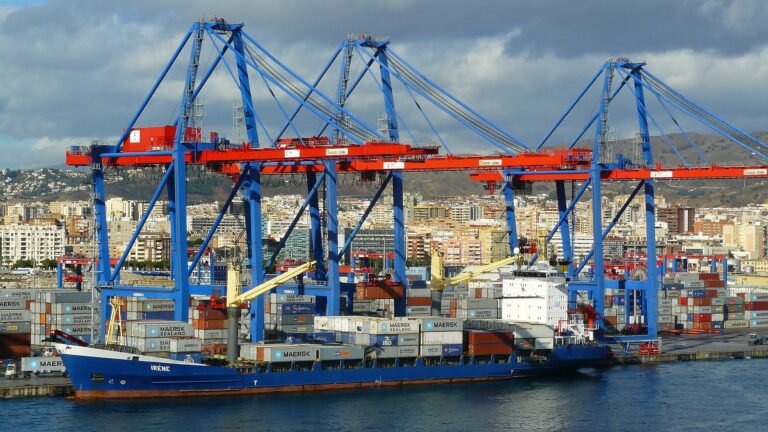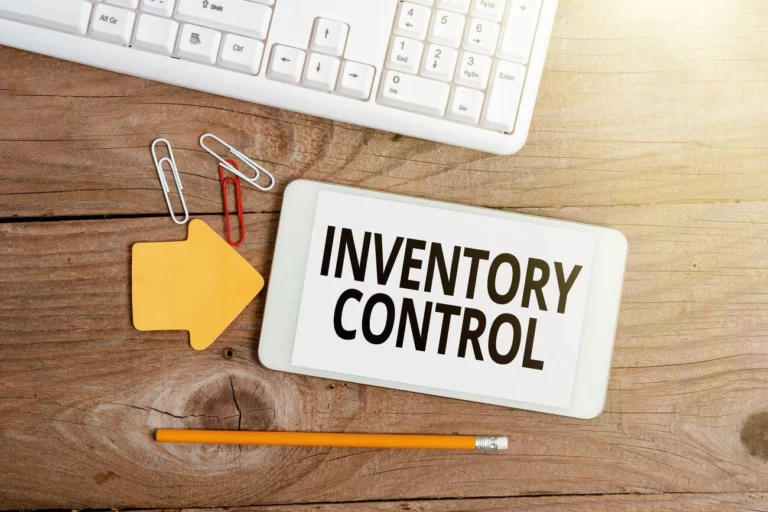411 on Demurrage: An Extensive Guide for Economic Shipping
Introduction:
Why did the demurrage fees go to therapy? They couldn’t handle the cargo’s refusal to leave without a “storage” of emotions!
While this joke is very jargon-specific, anyone well-versed in the proceedings of logistics, can relate to it and probably reminisce the penalty payments as demurrage.
To categorically define, demurrage refers to the charges incurred when cargo exceeds the allotted time for loading or unloading at ports and has an evident difference from detention.
On the other hand, detention occurs when containers are held outside the port, like at a storage yard, beyond their allotted free time. It’s similar to demurrage but applies to containers held outside the port’s premises.
Both demurrage and detention fees can add up quickly if not managed properly, impacting a company’s bottom line. Understanding the distinction between these charges is vital for effective supply chain management and cost control in shipping operations.
Demurrage Meaning and Origins:
Back in the day, when ships were the main way to transport goods across the seas, delays were a big problem. If a ship got stuck at the port because someone wasn’t ready to load or unload their cargo, the ship’s owner would lose money. So they started charging a fee for these delays, and that’s how demurrage was coined.
With massive container ships carrying goods all over the world, delays at the port can cause huge headaches. Ports get crowded, storage space fills up fast, and everyone’s schedules get thrown off. And when things get delayed, it costs money. Lots of money!!
Today, demurrage is a penalty for failing to adhere to the agreed-upon timeframes outlined in shipping contracts. It acts as a deterrent to encourage timely loading and unloading of cargo, thereby facilitating smoother operations within ports and minimizing congestion.
Furthermore, demurrage fees vary depending on factors such as the type of cargo, the duration of the delay, and the terms negotiated in the shipping contract. Importantly, these charges can quickly add up, impacting a company’s profitability and competitiveness in the market.
So, demurrage isn’t just a random fee. It’s a way to keep things moving smoothly in shipping and logistics. But for businesses, it can be a big headache. Not only do they have to pay extra fees, but delays in shipping can also mess up their schedules and cost them even more money in the long run. That’s why businesses need to understand demurrage and how to avoid it whenever possible.
Calculating Demurrage Fees
Considering various factors is essential when calculating demurrage fees. Firstly, the type and size of the container influence charges, with larger containers often incurring higher fees due to increased storage needs. Additionally, longer storage durations result in higher demurrage costs.
Port charges and associated administrative fees also contribute to overall demurrage expenses. These charges vary depending on the port and its regulations, adding complexity to the calculation process.
The calculation begins with understanding the timeline from container discharge at the destination port. Shipping lines typically provide a set number of free days for unloading before demurrage charges apply. Beyond this grace period, demurrage fees accrue daily based on factors like container type, storage duration, and additional port charges.
For instance, if a container arrives at the port and exceeds the free days, demurrage charges apply. These charges are usually calculated per day, depending on shipping line policies and port regulations.
The calculation of demurrage fees is multifaceted, encompassing various types of charges that can arise during container handling at terminals. One common type is container dwell time demurrage, which occurs when containers remain within the terminal beyond the allotted free period. This delay can be caused by congestion, inefficient cargo handling, or documentation issues, impacting terminal operations and overall cargo movement efficiency.
Another type is gate demurrage, resulting from delays at the entrance or exit gates of terminals, leading to charges for exceeding the free time allotted for gate activities. Factors like gate congestion or inefficiencies in gate operations contribute to this type of demurrage, affecting companies’ logistics efficiency.
Free time expiration demurrage occurs when containers remain at the terminal beyond the free time allotted for loading, unloading, or storage activities. Delays in vessel berthing or cargo handling bottlenecks can trigger this type of demurrage, impacting cost-effectiveness and supply chain timelines.
Documentation demurrage arises from delays in submitting or processing required documentation, such as customs paperwork. Inefficient documentation processes can lead to cargo clearance delays, increasing demurrage costs for affected containers.
Reefer plug demurrage pertains to delays in managing reefer containers requiring temperature control. Issues like limited plug availability or equipment breakdowns can contribute to this demurrage type, potentially leading to temperature-sensitive cargo issues and additional costs for companies.
Understanding demurrage calculation is crucial for shippers to anticipate and budget for additional costs. By staying informed about fees and terms, shippers can manage logistics, minimize disruptions, and avoid unexpected expenses. Nowadays, technology-enabled real-time shipment tracking software helps in managing better demurrage costs.
The Impact of Demurrage on Supply Chain Efficiency
The broader implications of demurrage fees on supply chain operations are significant. Firstly, these fees can substantially impact costs, potentially leading to budget overruns if not properly managed. Demurrage charges add to the overall expenses of logistics operations, affecting the bottom line of businesses involved in international trade.
Moreover, demurrage fees can hinder operational efficiency within the supply chain. Delays in container movement due to demurrage can disrupt the flow of goods, leading to bottlenecks at ports and terminals. Such disruptions can cascade throughout the supply chain, affecting production schedules, inventory management, and customer satisfaction.
Timely freight management becomes crucial in mitigating demurrage-related challenges. By ensuring efficient coordination and scheduling of shipments, businesses can minimize the risk of delays and associated demurrage costs. This involves proactive planning, effective communication with shipping partners, and leveraging technology solutions for real-time tracking and monitoring of cargo movements.
Ultimately, timely freight management not only helps reduce demurrage fees but also enhances overall supply chain resilience and competitiveness. Businesses that prioritize efficient logistics operations are better positioned to meet customer demands, adapt to market changes, and maintain a competitive edge in the global marketplace.
Also Read: What are Detention Charges and How to Avoid?
Strategies to Minimize Demurrage Charges
To tackle demurrage charges head-on, businesses can employ a range of practical strategies tailored to their shipping needs.
Start by diving into your shipping contracts with a keen eye. Understand every detail and negotiate terms that work in your favor. If you foresee delays, don’t hesitate to ask for extra wiggle room in the form of additional free days.
Next up, get cozy with your contracts involving buyers and sellers. Know your role inside and out to avoid any confusion down the line. This clarity can be a lifesaver when it comes to steering clear of demurrage traps.
Remember customs clearance. Familiarize yourself with the process and make sure all your paperwork is in shape. Smooth sailing through customs can help sidestep any hold-ups that might lead to demurrage charges.
When it comes to picking land couriers, reliability is key. Do your homework on rates, reliability, and efficiency to find a partner you can count on to keep things moving smoothly.
Always have a Plan B ready to roll. Whether it’s lining up alternative couriers or seeking out less congested ports, having backup options can save the day and keep demurrage at bay.
Consider opting for shipper-owned containers (SOC) instead of carrier-owned ones (COC). This gives you more control and could save you from surprise charges in the long run.
And finally, make the most of technology. Keep tabs on your shipments with advanced tracking tools and stay in the loop with vendors to nip any potential problems in the bud.
By weaving these strategies into your shipping playbook, you can steer clear of demurrage headaches and keep your cargo moving smoothly from port to port.
Also Read: Learn How to Avoid Demurrage and Detention
Navigating Legalities and Negotiations around Demurrage
When diving into the realm of demurrage legalities and negotiations, it’s like embarking on a journey through a maze of contracts and discussions. Understanding this part of shipping isn’t a walk in the park, but it’s vital for businesses aiming to keep costs low and steer clear of disputes.
Let’s start by getting a handle on the contractual obligations and rights tied to demurrage. These agreements lay down the rules for container storage beyond the free time allotted at ports or terminals. Knowing these terms is key to understanding what’s expected of you and what you’re entitled to when demurrage charges come knocking.
When hashing out terms with carriers and ports, it’s crucial to know exactly what your business needs. Take the time to pore over proposed contracts and terms, making sure they line up with your goals. Negotiating better terms, like more free time or lower demurrage rates, can help cut costs and prevent headaches down the road.
Don’t forget about the legal side of demurrage agreements, which can vary depending on where you’re operating. Seeking advice from legal experts or maritime law buffs can shed light on the legal nitty-gritty and help you navigate these murky waters with confidence.
In negotiations, flex your muscles a bit and show carriers and ports why they should give you a sweet deal. Highlight things like your shipment volume, your reliability, and the potential for long-term partnerships. By showcasing your value, you can swing negotiations in your favor and secure better demurrage terms.
Beyond just talking the talk, take proactive steps to control demurrage costs. This could mean tweaking your shipping schedules to avoid delays, communicating better with carriers and ports, or investing in top-notch cargo tracking systems for real-time monitoring.
Wrapping it all up, mastering demurrage legalities and negotiations is like untangling a knotty problem. With a savvy approach and a solid grasp of your rights and obligations, you can steer your shipping operations clear of rough waters and keep those pesky demurrage charges at bay.
Looking ahead, the future of demurrage in global trade appears poised for transformation, influenced by a multitude of factors shaping the logistics landscape. Technological advancements are expected to play a pivotal role, in revolutionizing how demurrage is managed and mitigated. With the advent of sophisticated tracking systems and real-time data analytics, companies can anticipate and address delays with greater precision and efficiency.
Moreover, regulatory changes are on the horizon, potentially altering the demurrage landscape by imposing stricter guidelines or introducing incentives for prompt container handling. As governments worldwide emphasize sustainability and efficiency in trade operations, demurrage practices may evolve to align with these objectives, leading to more sustainable and streamlined processes.
In tandem with technological and regulatory shifts, the evolving landscape of global trade is likely to impact demurrage practices. As supply chains become increasingly interconnected and complex, companies will need to adapt their demurrage strategies to navigate this intricate web of trade networks. Collaborative efforts among stakeholders, including shippers, carriers, and ports, will become paramount in optimizing demurrage management and minimizing financial burdens.
In conclusion, the intricate world of demurrage presents challenges and opportunities for businesses involved in global trade. From understanding the factors influencing demurrage costs to strategically managing these fees, the key takeaway is clear: proactive and informed management is essential for optimizing supply chain operations. By closely monitoring container movements, negotiating favorable terms with carriers and ports, and leveraging technology to streamline processes, companies can minimize the financial impact of demurrage and enhance overall efficiency.
As we navigate the complexities of demurrage, it’s crucial to stay ahead of the curve and adopt innovative solutions that facilitate seamless logistics operations. That’s where GoComet comes in. With the platform offering tools and services tailored to streamline logistics operations and minimize demurrage costs, businesses can gain a competitive edge in the global marketplace. Let’s embark on this journey together to unlock new opportunities, optimize supply chain performance, and drive business growth. Explore GoComet’s platform today and revolutionize the way you manage demurrage and logistics.






